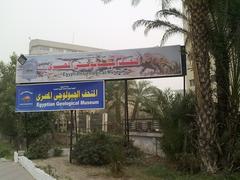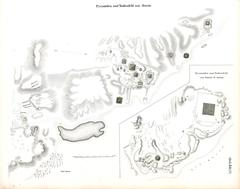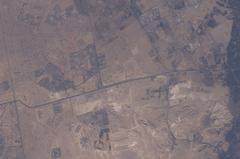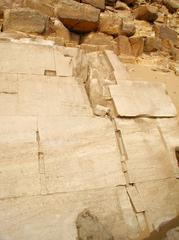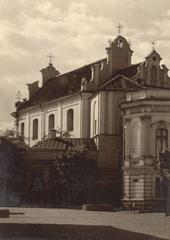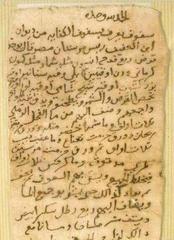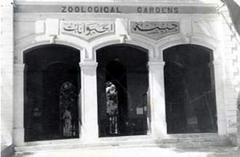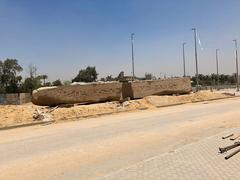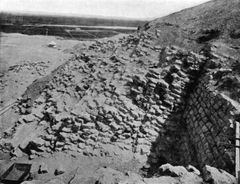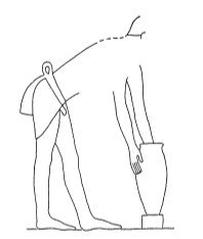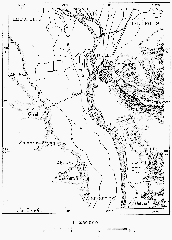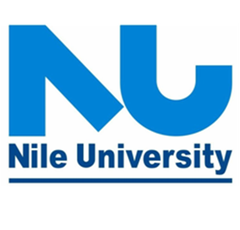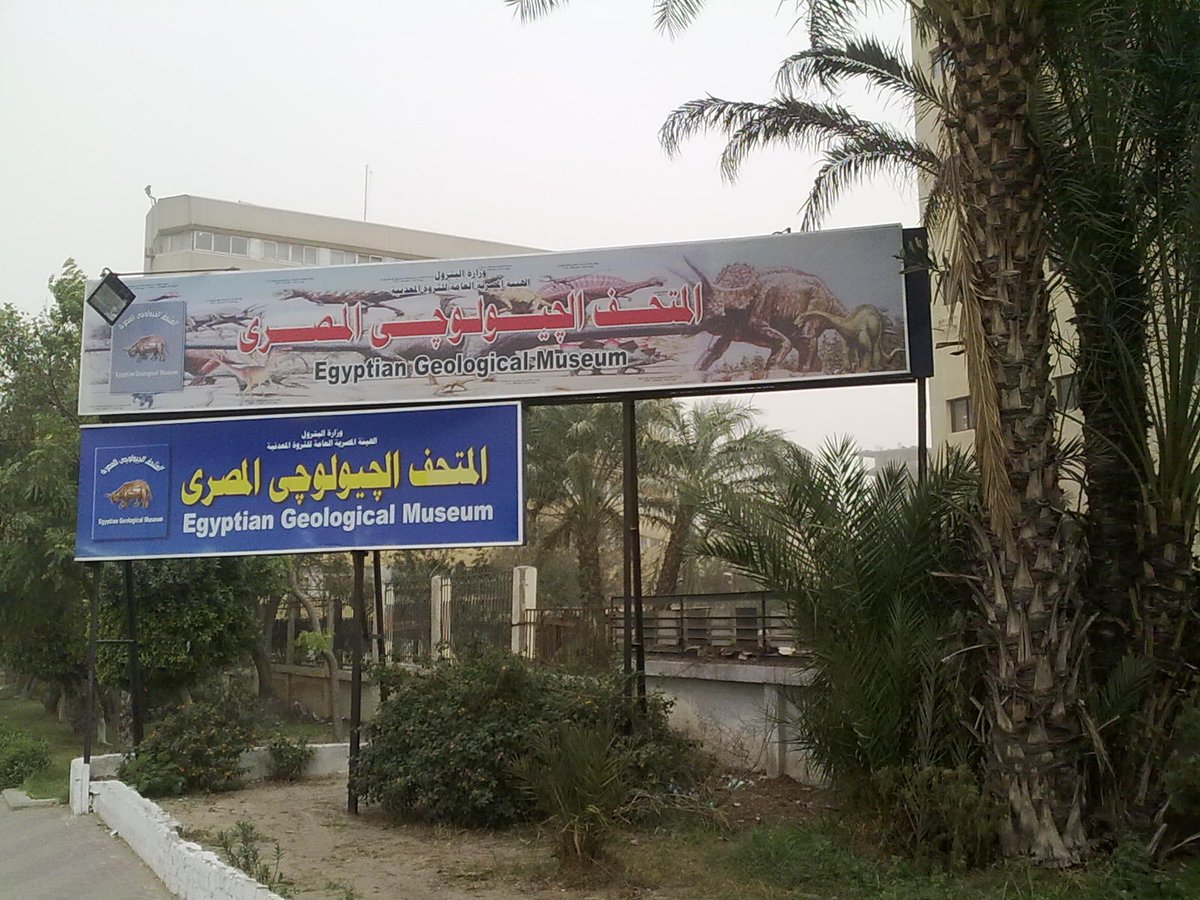
Egyptian Geological Museum Visiting Hours, Tickets, and Guide to Giza Historical Sites
Date: 14/06/2025
Introduction
The Egyptian Geological Museum, located in the Giza Governorate near Cairo, is a landmark institution dedicated to Egypt’s geological and paleontological heritage. Established in the early 20th century, it was the first geological museum in the Middle East and Africa. Today, the museum is a center for scientific research, education, and public engagement, offering visitors access to more than 30,000 specimens, including minerals, fossils, meteorites, and ores. These collections narrate the geological history and early mining traditions of Egypt’s landscapes, such as the Eastern Desert, Sinai Peninsula, and Fayoum region. Notable artifacts include the famed Nakhlite meteorite from Mars and vertebrate fossils from the Fayoum Desert. The museum’s rich legacy, scientific significance, and visitor-friendly facilities make it an essential destination for anyone interested in Egypt’s natural history. For more visitor details, see Egypt Tours Gate, Cairo360, and Great Archaeology.
Table of Contents
- Introduction
- Historical Background
- Collections and Scientific Contributions
- Research, Education, and Preservation
- Visiting Information
- Notable Highlights
- Frequently Asked Questions (FAQ)
- Conclusion
- References
Historical Background
Founding and Early Development
Founded in 1901 as part of the Egyptian Geological Survey (est. 1896), the Egyptian Geological Museum is a pioneering institution for science and culture in the region (Wikipedia). Its original Greco-Roman style building, designed by Marcel Dourgnon, boasted grand exhibition halls to display large fossils and minerals. The museum’s early leadership included experts like William Andrews and Henry Osborne, who set the foundation for future scientific endeavors.
Expansion and Modernization
By the mid-20th century, the museum added laboratories for petrology and paleontology. The original building was demolished in 1982 due to metro construction, prompting relocation to Maadi, Cairo (Wikipedia). Modernization efforts, including renovations begun in 2019, have improved facilities, accessibility, and the visitor experience (Egypt Tours Gate).
Collections and Scientific Contributions
Geological and Paleontological Heritage
The museum houses a collection of over 30,000 specimens, featuring minerals, rocks, ores, and fossils from across Egypt (Egypt Tours Gate). Exhibits detail the development of mining and metallurgy in Pharaonic Egypt, including gold and copper from the Eastern Desert and iron from Aswan (Ministry of Petroleum and Mineral Resources).
Fossil Discoveries
One of the museum’s scientific highlights is its vertebrate fossil collection from the Fayoum Desert, excavated in 1898 by Hugh Beadnell. These include whale bones (Basilosaurus), early mammals, and dinosaur remains, offering critical insights into ancient North African ecosystems (Wikipedia).
Invertebrate and Plant Fossils
The museum also features ammonites, trilobites, mollusks, and fossilized plants, illustrating Egypt’s ancient environments.
Meteorites and Minerals
The meteorite collection includes the Nakhlite meteorite (a Martian specimen that fell in 1911) and pieces from the Kamil iron meteorite crater. These are significant for planetary science research (Wikipedia). Mineral displays feature quartz, amethyst, calcite, and topaz, reflecting Egypt’s geological diversity and the ancient use of gemstones (Egypt Tours Gate).
Research, Education, and Preservation
The museum is a hub for geological research, with laboratories for mineralogical, petrological, and paleontological studies. Its library, with references dating back to 1778, supports ongoing research (Ministry of Petroleum and Mineral Resources). Collaborations with international universities and museums further its scientific mission.
Educational programs cater to students and teachers, while public workshops and guided tours foster awareness of Egypt’s geological heritage. The museum has also managed to safeguard its collections through periods of war and unrest (Wikipedia).
Visiting Information
Hours
- Open: Saturday to Thursday, 9:00 AM – 4:00 PM
- Closed: Fridays and public holidays
Tickets
- Adults: 40–50 EGP
- Students/Seniors (with ID): 15–25 EGP
- Children under 12: Free
Ticket prices may vary. Check the official website or contact the museum for the latest information.
Accessibility
- Wheelchair accessible
- Ramps, elevators, and accessible restrooms available
- Staff assistance for visitors with special needs
Getting There
- Location: Maadi, Giza Governorate, Cairo; some sources also note a site at 49 Ramses Street, Downtown Cairo. Confirm the current location before visiting.
- Transport: Taxi, private car, or metro (Giza or Sadat stations, with a short taxi ride). Bus routes also serve the area.
- Nearby Attractions: Great Pyramids of Giza, Sphinx, Solar Boat Museum, Pharaonic Village, and other Cairo museums.
Guided Tours & Special Events
- Guided tours in Arabic and English are available; advance booking is advised.
- Educational workshops and special exhibitions are held throughout the year.
- For schedules, consult the museum’s website or social media pages.
Visitor Tips
- Photography is usually permitted, but restrictions may apply to some exhibits.
- Plan at least 2 hours for your visit.
- Bring a notebook or camera for recording your experience.
- The museum includes a gift shop; nearby cafes are available in Maadi.
Notable Highlights
- Nakhlite Meteorite: Rare Martian meteorite, key to planetary studies.
- Fayoum Vertebrate Fossils: Including ancient whales and early mammals.
- Pharaonic Mining Artifacts: Gold, copper, and iron ores from historic mining regions.
- Rare Minerals: Quartz, topaz, amethyst, and more, with ancient and modern significance.
- Educational Resources: Library with historic geological texts and maps.
Frequently Asked Questions (FAQ)
Q: What are the museum’s visiting hours?
A: Saturday to Thursday, 9:00 AM to 4:00 PM; closed Fridays and public holidays.
Q: How much are tickets?
A: Adults: 40–50 EGP; students/seniors: 15–25 EGP; children under 12: free.
Q: Is the museum wheelchair accessible?
A: Yes, with ramps, elevators, and staff assistance.
Q: Are guided tours available?
A: Yes, in Arabic and English, typically lasting 60–90 minutes. Book in advance.
Q: Can I take photos?
A: Generally yes, but check at the entrance for restricted areas.
Q: How do I get there?
A: By taxi, private car, metro (Giza or Sadat station), or bus.
Q: Are there shops or cafes on site?
A: There is a gift shop; cafes are available nearby.
Conclusion
The Egyptian Geological Museum stands as a testament to Egypt’s scientific heritage, offering an enriching experience through its world-class collections and educational programs. Its accessible facilities, guided tours, and commitment to research and preservation make it a must-visit for tourists, students, and scholars alike. For the most current visitor information, consult the official museum website or trusted travel resources. Enhance your exploration by downloading the Audiala app and connecting with Egypt’s broader network of historical sites.
References
- Egyptian Geological Museum - Wikipedia
- Egyptian Geological Museum - Egypt Tours Gate
- Egyptian Geological Museum - Cairo360
- Egyptian Geological Museum - Great Archaeology
- Egyptian Geological Museum - Connolly Cove
- Egyptian Geological Museum - Ministry of Petroleum and Mineral Resources
